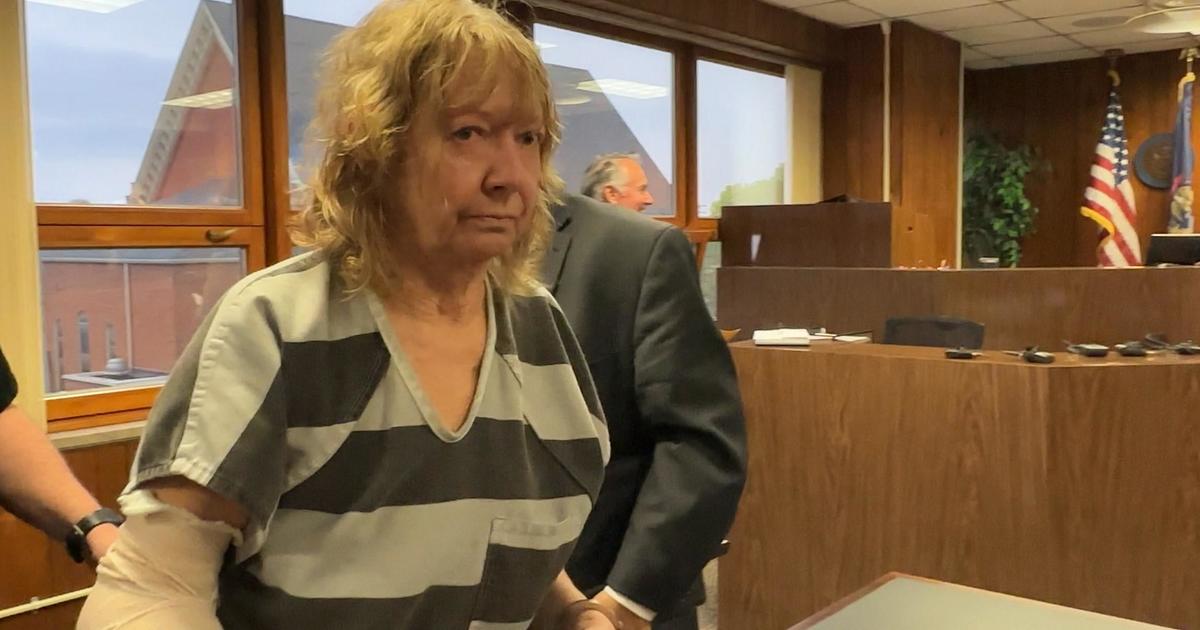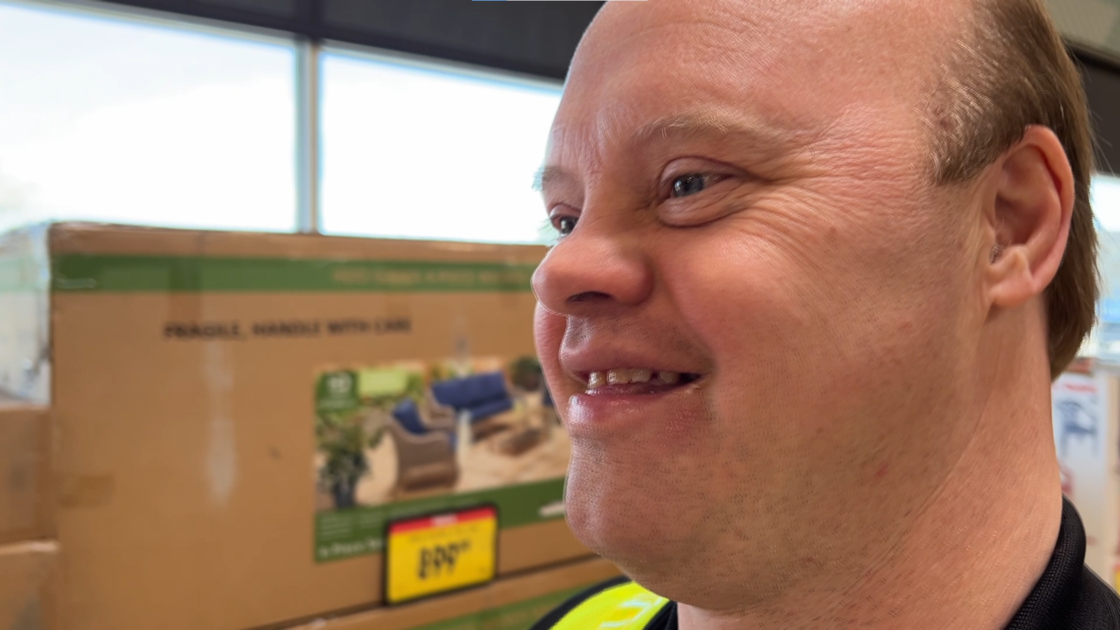Kwame Kilpatrick Trial Closing Arguments: Day One
By Christy Strawser
DETROIT (CBS Detroit) So it comes down to this: Both sides get a final chance to present their case today in the federal corruption trial of former Detroit Mayor Kwame Kilpatrick.
A somber looking Kilpatrick settled in wearing a chocolate brown suit and dark tie before the 9 a.m. court day began, flanked by his co-defendants and more than a half dozen attorneys. Judge Nancy Edmunds spent two hours going over detailed jury instructions before closing arguments, which began at 12:30 p.m. and ended at 2:30 p.m.
The defense presents their closing arguments Tuesday morning.
FOLLOW THE ACTION AS IT UNFOLDED BELOW:
2:20 p.m. Kilpatrick Incorporated was wrong and it was criminal, prosecutor Michael Bullotta said, summing up his case.
2:15 p.m.: And then there was Synagro ... The wastewater company with the biggest contract in the case, $1.1 billion over 25 years, had to work within the Kilpatrick Enterprises system, prosecutor Michael Bullotta said.
Synagro's James Rosendall testified that he attended a party at the Manoogian mansion where Kwame Kilpatrick introduced him to his father Bernard and said, 'This is the guy I want you to work with."
Answering machine tapes were played with Bernard Kilpatrick telling Rosendall in response to a vacation message: "I would appreciate a call today -- Vacation or no mother*** vacation."
A video was shown in court taken with hidden FBI camera where Bernard Kilpatrick scolds Rosendall for delivering cash to him in a public parking lot. "I don't have three people in this city that I trust at that level, most people will not go under the bus for you," Bernard Kilpatrick is heard saying.
2 p.m. Cleaning company owner Karl Kado, who worked at Cobo Center, testified that Kilpatrick would call and say "I have to see you," and that meant he was supposed to arrive with $10,000 cash. Sometimes, Kilpatrick pal Derrick Miller would swing by and pick up the money himself, the prosecutor said. Kado also paid Bernard Kilpatrick between $200,000 and $250,000, the prosecutor said.
Mark Andre Cunningham, a close friend of Kilpatrick, was allegedly told he had to pay part of his commission for work with a private company that did work with Detroit to Bernard Kilpatrick. "No deal without me applied, even to Kwame Kilpatrick's closest friends," prosecutor Michael Bullotta said, adding Kilpatrick would sometimes ask Cunningham, "Have you taken care of my dad?"
1:45 p.m. "Walbridge is not playing ball," one text message from Bobby Ferguson complained to pal Kwame Kilpatrick about firm Walbridge that refused to cut Ferguson in on a major project planned in Detroit. Despite pressure from Ferguson, they refused to give in and their bid was rejected, prosecutor Michael Bullotta said.
Trying to get work with the city of Detroit, businessman Johnson Akinwusi paid off $4,800 in suits Kilpatrick had on layaway at a place called Fashion International. He was then invited to bid on a project, the prosecutor said. Ferguson allegedly visited him after the bid process began and said his company needed to be cut in. Akinwusi agreed. "If I didn't pay Bobby, the job would not go," Akinwusi testified.
1:40 p.m. Inland Waters, a Detroit company run by Tony Soave, was also the victim of extortion, the prosecutor said. Soave found out Kilpatrick was holding onto his contract, costing him millions of dollars and putting his employees at risk of losing their jobs so he approached the mayor to figure out what was going on.
"You have the wrong subcontractor," Soave said Kilpatrick told him, allegedly adding he needed to hire Bobby Ferguson. It was the first time Soave had heard Ferguson's name, prosecutor Michael Bullotta said.
To save his workers and his company, Soave went along with it and hired Ferguson, he said, adding Ferguson wanted to be paid for no work. Bullotta said: "It got so bad with Ferguson that Soave went to the mayor and asked 'Is Ferguson still your guy?'" Kilpatrick's answer? "Yes."
Inland eventually paid Ferguson $350,000 for nothing, Bullotta said.
1:15 p.m.: A 10-minute break is set for the jury after Prosecutor Michael Bullotta goes through contracts that he says were rigged in favor of Kilpatrick pal and co-defendant Bobby Ferguson.
1 p.m.: "No deal without me," is a phrase Bullotta puts up on a big screen, saying that was the motto of Kilpatrick Enterprises.
The prosecutor goes over a $10 million sewer contract that was allegedly canceled by former co-defendant Victor Mercado, head of the Water Department under Kilpatrick, after the company, Lakeshore, refused to give Bobby Ferguson a 25 percent cut. He displays texts between Ferguson and Kilpatrick that seem to dictate the contract be cut unless Ferguson is included.
The owner of Lakeshore later gave Ferguson a cut of a proposed $20 million deal -- and it went through. The prosecutor says it's the definition of extortion.
12:55 p.m.: Talk turns to former Kilpatrick fundraiser and family friend Emma Bell and how difficult it was for her to testify against him.
Kilpatrick keeps his head in his hands, staring straight ahead as the prosecutor details cash kickbacks he accuses Kilpatrick of demanding from Bell.
John Rutherford, who wanted a casino in Detroit, allegedly gave Kilpatrick $10,000 in suits and thousands more for a trip to Dubai, the prosecutor says, adding, "That's bribery."
12:45 p.m.: A video is shown from years ago with Kilpatrick explaining during a news interview that he wouldn't use campaign funds for his own use because that's not legal.
"In reality, the civic fund was used to pay for polling ... They had one purpose and one purpose only, and that was to get Kwame Kilpatrick elected mayor," the prosecutor said.
He added civic funds were used to buy $3,000 in yoga lessons, a lavish vacation in Vail, Colo. , a $5,000 preschool graduation party, graphite shaft golf clubs with a bag emblazoned with the phrase "The Mayor."'
"In 2002, the cash starts pouring in," the prosecutor said, showing bank records with thousands of dollars in cash deposits. "Again, this is only the cash that hit the bank ... that raises the question 'Where did it come from?'"
The prosecutor shows a text between Kilpatrick and Ferguson saying, "Let's get us some money." Another text details where to find $7,500 in a closet.
12:30 p.m.: The defendants filed back into the room after lunch, and a podium was set up so the attorneys could speak directly in front of the jury.
"Full house," someone says at the microphone, and the room laughs. The courtroom and media room are packed.
The federal prosecutor launches right in, saying of the former mayor and his cohorts: "They turned the mayor's office into Kilpatrick Incorporated, a private for-profit machine."
He pointed out incidents where Bobby Ferguson's high bid won the contract, and brought up texts on a big screen that alluded to Ferguson and Kilpatrick working together to rake in cash.
"He had bodyguards going with him everywhere he went, he had staff at his beck and call ... But that wasn't enough,' the prosecutor said.
"What mattered was (they) got paid," prosecutor says.
He went on to discuss how Ferguson's lavish office, with a spiral staircase, hardwood floors, and lavish "chilling room," drew attention. He alleged Ferguson paid for it with public money and faked invoices to cover his tracks.
Kilpatrick appears to be listening intently as the prosecutor outlines accusations that non-profit money meant to benefit children was sidelined into a salary for Carlita Kilpatrick for a job that didn't exist.
"The state arts grant money wasn't the only money Kilpatrick stole," the prosecutor said.
___
The judge began the day by praising the "extraordinary jury" who have not taken sick days, sometimes battled weather to get there, and have remained attentive. "No one can ever believe it," Edmunds said about their unflagging dedication.
As Kilpatrick looked over sheets of paper and took notes, sometimes leaning his head on his arm, Edmunds started the day going over 75 pages of jury instructions, which included information like "the indictment is not evidence of guilt ... It does not even raise suspicion of guilt."
She urged them to use common sense, saying reasonable doubt does not mean beyond the shadow of a doubt. The judge also instructed the jury to use their own judgement and common sense to gauge the believability of witnesses.
"Do not base any decisions based only on the number of witnesses who testified," the judge said, adding the number of charges is also not evidence of guilt.
The judge went over all the elements the jury has to decide in choosing guilt or innocence on more than 30 charges of extortion, bribery and mail fraud. She explained the elements of racketeering, saying the "enterprise" didn't need organization, just acts that included Kilpatrick and at least one conspirator acting in a pattern.
In nearly 70 days of testimony, jurors in Edmunds' courtroom heard about Kilpatrick allegedly getting bribes that were collected in the bra of longtime friend and fundraiser Emma Bell, they heard about civic funds allegedly getting diverted to pay for lavish trips, golf clubs, parties, and yoga lessons. There were allegations about the mayor's wife Carlita Kilpatrick using a charity allegedly for children and seniors as a front to line the family's pockets, money delivered in vacuum bags and in the bathroom of a Detroit Chinese restaurant.
As instructions started to wind down, the judge instructed the jury to not even discuss in deliberations the fact Kilpatrick did not testify in his own defense. "It is not up to the defendant to prove that he is innocent," she said.
Kilpatrick, his father Bernard and Detroit contractor Bobby Ferguson are charged with fraud, bribery, tax crimes and racketeering conspiracy. The charges carry a possible penalty of 20 years in prison.
A few charges were dropped Friday in the interest of streamlining the case, according to the prosecutor U.S. Attorney Barbara McQuade.
The complete charges are:
For Kwame Kilpatrick, one count of racketeering conspiracy: 20 years in prison; 8 counts of extortion: 20 years in prison, $250,000 fine; two counts of bribery: 10 years in prison, $250,000 fine; 13 counts of mail and wire fraud: 20 years, $250,000 fine; five counts filing false tax returns: 3 years and $100,000 fine; one count tax evasion: 5 years, $100,000 fine and the cost of the prosecution.
For Bernard Kilpatrick, the charges are one count of racketeering conspiracy: 20 years in prison; one count of extortion: 20 years, $250,000 fine; and two counts filing false tax return: 3 years and $100,000 fine.
Former Kilpatrick best friend Bobby Ferguson faces one count of racketeering conspiracy: 20 years in prison; eight counts of extortion: 20 years, $250,000 fine; two counts of bribery: 10 years, $250,000 fine.



